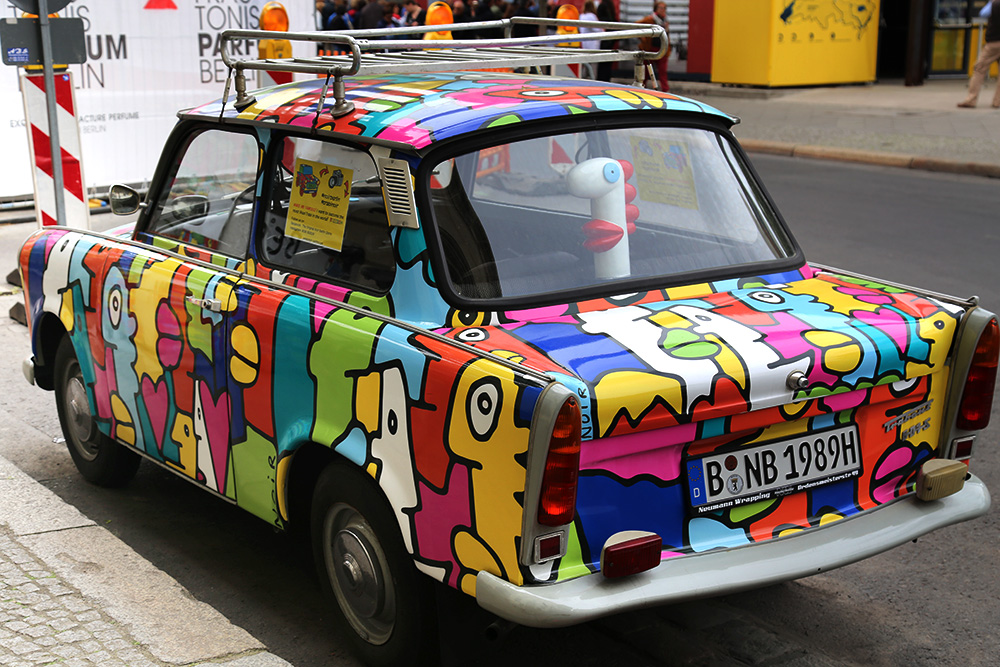By David Liu

Around 3 million Trabants were produced by East Germany until the Berlin Wall fell. Sales fell as Trabi owners abandoned their cars and the company had to stop production.
The iconic Trabant, the most common car in East Germany, was manufactured by VEB Sachsenring from 1957 to 1991, Two years after the Berlin Wall fell, the company made the last “Trabi,” marking an end to its 3-million-strong production.
Equipped with a two-stroke engine, a plastic shell and two doors, the Trabi could hold four adults and luggage space. Because of its low-cost material – the plastic was made from recycled material, such as cotton waste – the Trabi was inefficient, easy to break down, slow and polluting.
Despite its problems, the Trabi was the only vehicle choice for East Germans. And to get one cost nearly an East German’s entire annual salary and could take up to eight year to make it through the waiting list for one of the four models.
Germany has the Volkswagen, Audi, Mercedes-Benz and BMW, among others, but today, the Trabi still putters the roads of Germany, as well as countries such as the US, where it has become a collector’s item, according to article by the Wall Street Journal, based on nostalgia and historical significance.
A Berlin and Dresden-based company called Trabi World, rents the colourfully painted cars for city tours and runs a Berlin Trabi museum in the afternoons not far from Checkpoint Charlie museum, on the site of the former border crossing between East Germany and West Germany.
See a Trabant photo slideshow here.

